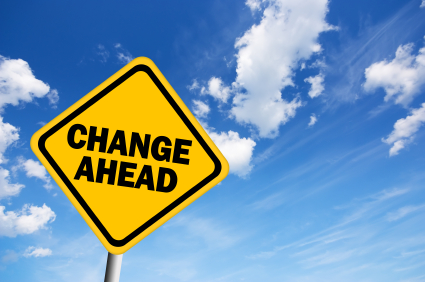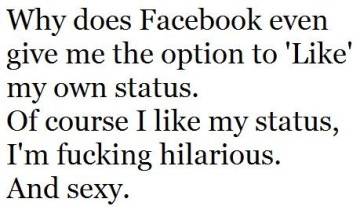It's Not Possible To Be Fully Human If You Are Being Surveilled 24/7
Groklaw has now shut down it's operations to avoid exposing all of it's email to government surveillance.
Groklaw is a site that provided deep analysis of the legal system, providing explanations of ongoing court cases. Now it's joined other online services like Lavabit that have closed down in order to protect their users privacy.
You can read the entire story here but the following I found especially compelling:
...What I do know is it's not possible to be fully human if you are being surveilled 24/7.
Harvard's Berkman Center had an online class on cybersecurity and internet privacy some years ago, and the resources of the class are still online. It was about how to enhance privacy in an online world, speaking of quaint, with titles of articles like, "Is Big Brother Listening?"
And how.
You'll find all the laws in the US related to privacy and surveillance there. Not that anyone seems to follow any laws that get in their way these days. Or if they find they need a law to make conduct lawful, they just write a new law or reinterpret an old one and keep on going. That's not the rule of law as I understood the term.
Anyway, one resource was excerpts from a book by Janna Malamud Smith,"Private Matters: In Defense of the Personal Life", and I encourage you to read it. I encourage the President and the NSA to read it too. I know. They aren't listening to me. Not that way, anyhow. But it's important, because the point of the book is that privacy is vital to being human, which is why one of the worst punishments there is is total surveillance:
One way of beginning to understand privacy is by looking at what happens to people in extreme situations where it is absent. Recalling his time in Auschwitz, Primo Levi observed that "solitude in a Camp is more precious and rare than bread." Solitude is one state of privacy, and even amidst the overwhelming death, starvation, and horror of the camps, Levi knew he missed it.... Levi spent much of his life finding words for his camp experience. How, he wonders aloud in Survival in Auschwitz, do you describe "the demolition of a man," an offense for which "our language lacks words."...One function of privacy is to provide a safe space away from terror or other assaultive experiences. When you remove a person's ability to sequester herself, or intimate information about herself, you make her extremely vulnerable....
The totalitarian state watches everyone, but keeps its own plans secret. Privacy is seen as dangerous because it enhances resistance. Constantly spying and then confronting people with what are often petty transgressions is a way of maintaining social control and unnerving and disempowering opposition....
And even when one shakes real pursuers, it is often hard to rid oneself of the feeling of being watched -- which is why surveillance is an extremely powerful way to control people. The mind's tendency to still feel observed when alone... can be inhibiting. ... Feeling watched, but not knowing for sure, nor knowing if, when, or how the hostile surveyor may strike, people often become fearful, constricted, and distracted.
I've quoted from that book before, back when the CNET reporters' emails were read by HP. We thought that was awful. And it was. HP ended up giving them money to try to make it up to them. Little did we know.
Ms. Smith continues:
Safe privacy is an important component of autonomy, freedom, and thus psychological well-being, in any society that values individuals. ... Summed up briefly, a statement of "how not to dehumanize people" might read: Don't terrorize or humiliate. Don't starve, freeze, exhaust. Don't demean or impose degrading submission. Don't force separation from loved ones. Don't make demands in an incomprehensible language. Don't refuse to listen closely. Don't destroy privacy. Terrorists of all sorts destroy privacy both by corrupting it into secrecy and by using hostile surveillance to undo its useful sanctuary.But if we describe a standard for treating people humanely, why does stripping privacy violate it? And what is privacy? In his landmark book, Privacy and Freemom, Alan Westin names four states of privacy: solitude, anonymity, reserve, and intimacy. The reasons for valuing privacy become more apparent as we explore these states....
The essence of solitude, and all privacy, is a sense of choice and control. You control who watches or learns about you. You choose to leave and return. ...
Intimacy is a private state because in it people relax their public front either physically or emotionally or, occasionally, both. They tell personal stories, exchange looks, or touch privately. They may ignore each other without offending. They may have sex. They may speak frankly using words they would not use in front of others, expressing ideas and feelings -- positive or negative -- that are unacceptable in public. (I don't think I ever got over his death. She seems unable to stop lying to her mother. He looks flabby in those running shorts. I feel horny. In spite of everything, I still long to see them. I am so angry at you I could scream. That joke is disgusting, but it's really funny.) Shielded from forced exposure, a person often feels more able to expose himself.
I hope that makes it clear why I can't continue. There is now no shield from forced exposure. Nothing in that parenthetical thought list is terrorism-related, but no one can feel protected enough from forced exposure any more to say anything the least bit like that to anyone in an email, particularly from the US out or to the US in, but really anywhere. You don't expect a stranger to read your private communications to a friend. And once you know they can, what is there to say? Constricted and distracted. That's it exactly. That's how I feel.





 Post a Comment
Post a Comment



